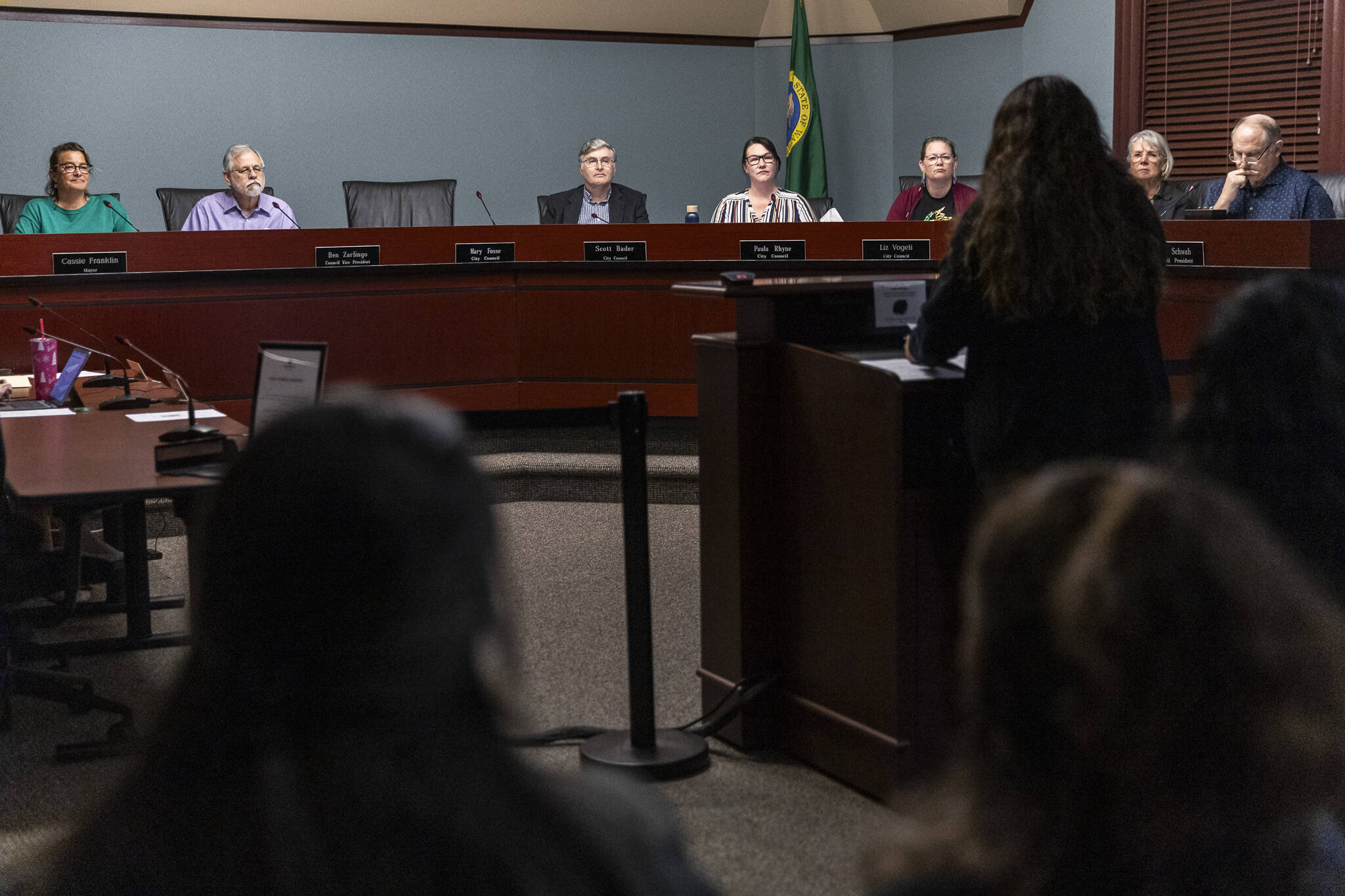EVERETT — Planning staff shared details of the final draft of Everett’s comprehensive plan periodic update on Wednesday as the City Council enters the final stretch before voting on whether to approve the planning document.
In the works for more than three years, the comprehensive plan amends city land use law and development regulations to plan for population growth over the next two decades. Larger cities like Everett are required by state law to update their plans every 10 years.
The plan lays out a framework to prepare for 65,000 new residents, 36,500 new housing units and 84,300 jobs by 2044, working to ensure housing affordability and availability while preventing the negative impacts of low-density urban sprawl.
City planners implemented some changes between its April 7 complete draft and the final document based on public feedback, mostly downzoning some small areas of the city where residents raised concerns over traffic and loosening some development regulations.
On Wednesday, the council also approved rezoning an area totaling 75 acres around the Phil Johnson Ballfields along Sievers Ducey Boulevard as open space, rather than its current light industrial use zoning. The change will make it one of the largest open space areas in the city.
As written, the final plan would implement recommendations made by local nonprofits and community groups that will attempt to curb displacement in the Casino Road neighborhood in south Everett. Those include a one-floor height bonus to affordable developments on faith-owned land, a commitment to work on a detailed sub area plan for the neighborhood and implementing inclusionary zoning in certain areas of Everett.
Inclusionary zoning is a policy requiring larger developments — in Everett’s case, developments with at least seven units — to make some units available at rates affordable to those earning less than the area median income.
But on Tuesday, members of Everett’s planning commission raised concerns over implementing inclusionary zoning in the Casino Road area, worrying that increasing development costs could slow building and drive up housing prices. Research on the policy’s effectiveness has shown mixed results, although forms of it have been implemented in hundreds of cities across the country, including Seattle, Redmond and Shoreline.
Snohomish County’s comprehensive plan also includes a goal of establishing inclusionary zoning in areas near light rail stations or mixed-use corridors.
“The only way to reduce costs is supply, that’s reality,” planning commissioner Todd Welch said of the inclusionary zoning policy on Tuesday. “I don’t think it’s going to fix the problem. I think it’ll exacerbate when it’s all said and done.”
On Tuesday, the commission recommended the City Council approve the comprehensive plan while removing the inclusionary zoning regulations. It also recommended working proactively on a sub area planning effort for the Casino Road neighborhood.
Connect Casino Road, a local nonprofit serving the south Everett neighborhood, had helped put forth the recommendation to enact inclusionary zoning in the comprehensive plan. In April, residents from the area spoke in support of the recommendations, citing the high cost of housing and fears of displacement.
Connect Casino Road’s director, Alvaro Guillen, expressed disappointment at the commission’s decision.
“This is a huge breach of the community’s trust and the thoughtful process that took place to engage the South Everett community,” Guillen wrote in an email Thursday. “Inclusionary zoning policy in the plan was the result of more than six months of work by housing experts, real estate developers, policy leaders, community based non-profit organizations and neighborhood residents. Incentive zoning was the biggest priority of the community and a critical policy for helping to ensure residents have the opportunity to stay in their community and address displacement pressures.”
The council would have to approve an amendment to the comprehensive plan to remove the inclusionary zoning rules. Guillen hopes the council will choose not to remove the policy, he wrote Thursday.
In addition, the council has yet to finalize its implementation of neighborhood commercial businesses, a policy that could allow for small-scale shops to open on some corner lots throughout residential areas of the city. Council members Ben Zarlingo, Scott Bader and Paula Rhyne formed a subcommittee to discuss the policy with planning staff.
The small neighborhood businesses could give an opportunity for local shops to serve neighborhood customers within walking distance, although on Wednesday, Zarlingo raised concerns over possible unintended consequences like increased noise or parking issues. He hopes for “a more incremental approach that focuses first on the things our community members want/need the most, and which I expect to have the most modest impact on the neighbors,” Zarlingo wrote in an email Thursday.
The subcommittee hopes to bring a recommendation to council by next week. The City Council is expected to vote on whether to approve the comprehensive plan on June 18.
Will Geschke: 425-339-3443; william.geschke@heraldnet.com; X: @willgeschke.
Talk to us
> Give us your news tips.
> Send us a letter to the editor.
> More Herald contact information.

























